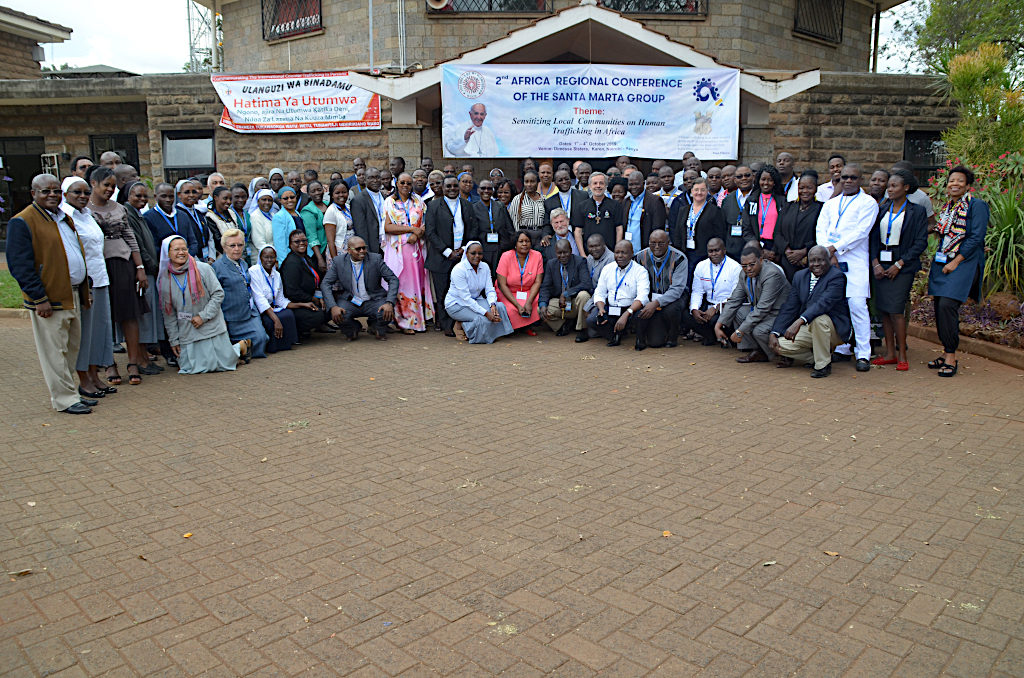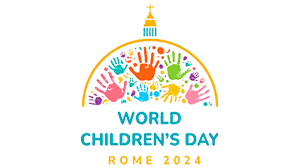KENYA: COVID-19 Pandemic Has Precipitated Human Trafficking Activities

SMG Participants during the 2nd Africa Regional Conference held in Nairobi in October 2019
Rose Achiego
In a recent Santa Marta Group (SMG) 3rd Africa Regional Conference held online on September 23rd-24th, 2020, it emerged that during the Covid-19 lockdowns, the internet has been used to execute human trafficking plans.
It was reported that “traffickers invented their “new normal” before the law agents got wary since the Covid-19 pandemic compromised Human Trafficking (HT) with the controls and restrictions that were imposed suddenly without a lot of preparation.”
To curb human trafficking during this pandemic, the Conference called on parents, Government and Religious institutions to take up their roles to safeguard humanity from all forms of slavery by offering guidance, counseling and intensifying the anti-trafficking legislation to address all online related crimes.
The virtual Conference was attended by the President of the SMG His Eminence Cardinal Vincent Nicholas, President of the Nigerian Catholic Bishops’ Conference, Most. Rev. Augustine Akubeze, Chairman of the Kenya Conference of Catholic Bishops’ (KCCB) Commission for Refugees, Migrants and Sea Farers Rt. Rev. Virgilio Pante IMC, KCCB – Catholic Justice and Peace Commission Chairman Rt. Rev. John Oballa Owaa, the Bishop of Manzini Diocese in Eswatini Rt. Rev. Jose Luis, the clergy and Religious women, civil society organization representatives, the media and law enforcement leaders from Nigeria, Ghana, Sierra Leone, Democratic Republic of Congo (DRC), Ivory Coast, Eswatini, South Africa, Mozambique, Tanzania, Kenya, Ethiopia, Eritrea, Egypt and South Sudan.
During the Conference, the Church promised to spearhead continuous and joint training, empowerment initiatives, activism, advocacy, and awareness program across the continents through team work and sharing of relevant information on HT.
The Church also called on government agencies to give priority to prosecution, investigation and policing and to create special courts with specific preparation on HT crime to offset the workload and fasten judgement processes.
Causes of HT activities on the African continent have been attributed to wars and conflict, poverty, lack of resources, lack of opportunities, bad governance and corruption, risk of pandemics, family separation, lack of funds, lack of jobs, hardships, internet misuse and seduction, migration and refugees.
The leaders noted with concern the continued migration of people from Africa to Europe and the Middle East based on pseudo-promises of greener pastures and an invention of non-existing multinational companies with false opportunities for jobs.
They said governments in the Middle East and Europe have an opportunity to reverse the situation by effecting laws that protect African migrants against abuse, modern forms of slavery and mistreatment of persons, adding that African governments too have a role to prioritize the livelihoods of their citizens to avoid the inevitable movements.
“All governments and criminal justice systems must be accountable in their role and prioritize the war against HT. It is high time for everyone to own and become a key player in the war against HT.”
Quoting Pope Francis they said, “It is an open wound on the body of contemporary society, a scourge upon the body of Christ; a crime against humanity.”
Despite the challenges, the Conference also noticed indicators of outstanding hope. Several ongoing studies, enormous collaborations and team working with concrete action points against HT have been witnessed in the last years.
SMG is one vivid example among other initiatives that have been undertaken to bring the situation to a minimum.
There are also several efforts of various civil society groups, media, religious institutions, Government departments and also individual concerns offering genuine legal process, hospitality, solidarity, and fraternity to victims.


